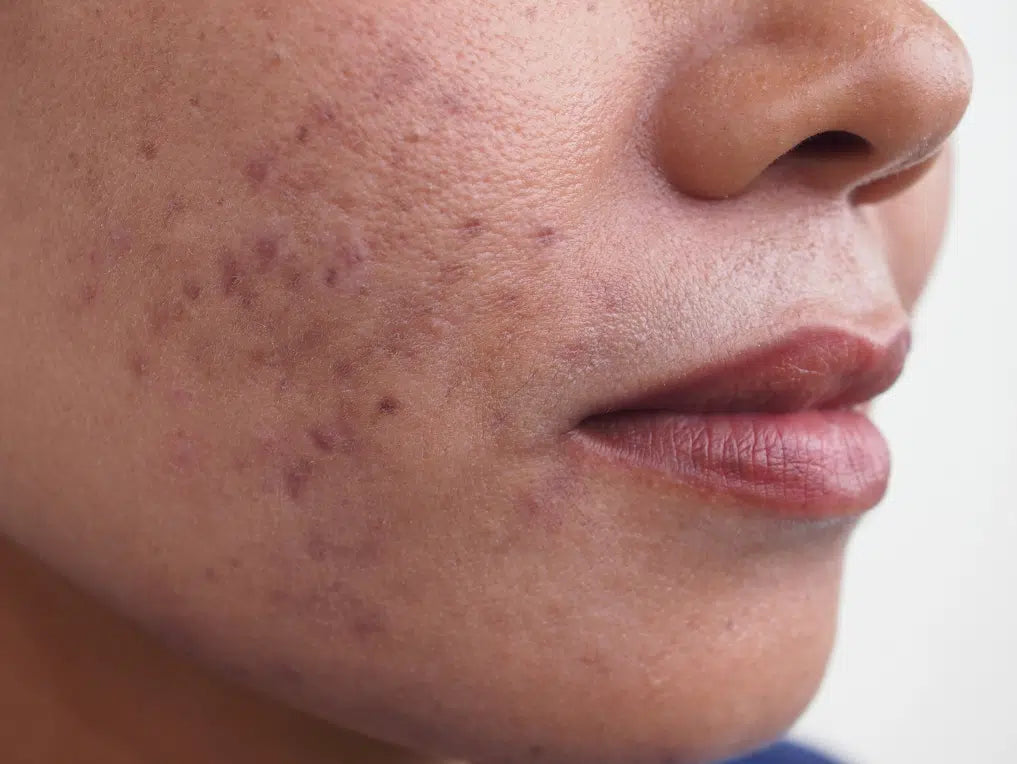
Hyperpigmentation: Causes, Treatments, and Prevention
Share
Hyperpigmentation: Causes, Treatments, and Prevention
Hyperpigmentation is a common skin issue. It can affect many areas, including the face and other parts of the body. This condition occurs when patches of the skin become darker than the surrounding area because of excess melanin production. While it is not harmful, it can affect self-confidence and appearance.
In this guide, we will look at hyperpigmentation. We will discuss what it is, what causes it, and the best treatments. We will cover both topical options and professional choices to help with it. If you have melasma, post-inflammatory hyperpigmentation, or dark spots, this article will help you find good solutions.

What is Hyperpigmentation?
Hyperpigmentation includes a variety of conditions such as melasma, dark spots, and liver spots. Many people of all skin tones face this issue. However, some types, like melasma, are more common in those with darker skin.
This condition often results from excessive melanin, which can be triggered by several factors:
• Medical history: Conditions like hormonal changes during pregnancy or birth control use.
• Trauma to the skin: Acne scars, cuts, or burns often lead to post-inflammatory hyperpigmentation.
• Sun exposure: UV rays intensify melanin production, creating dark spots or worsening existing pigmentation.
Hyperpigmentation can appear as patches, freckles, or even larger areas. Understanding your skin type and specific concerns is the first step toward managing this condition.
Causes of Hyperpigmentation
1. Sun Exposure
The sun is one of the leading culprits of hyperpigmentation. UV rays penetrate deep into the skin, stimulating melanin production to protect against damage. Over time, this results in dark spots and uneven tone, particularly on exposed areas of skin like the face and neck.
2. Hormonal Factors
Conditions like melasma and post-inflammatory hyperpigmentation often stem from hormonal fluctuations. These are especially common during pregnancy or when taking hormonal medications.
3. Skin Trauma
Any trauma to the skin, such as cuts, acne, or irritation, can trigger pigmentation as the skin heals. People often refer to this as post-inflammatory hyperpigmentation.
4. Aging
As we age, liver spots or age spots may develop because of cumulative sun exposure and slower skin renewal.
Treatment Options for Hyperpigmentation
1. Topical Treatments
Dermatologists recommend a variety of topical treatments to fade hyperpigmentation:
• Skin lightening creams: Ingredients like hydroquinone, niacinamide, or kojic acid can help reduce melanin production.
• Chemical peels: These treatments use acids to exfoliate and brighten the skin.
• Retinoids: These speed up cell turnover, reducing the appearance of dark spots over time.
2. Professional Treatments
For stubborn pigmentation, professional treatments may be more effective:
• Laser treatment: Targets melanin deposits with precision, ideal for deeper pigmentation.
• Intense pulsed light (IPL): Effective for treating hyperpigmentation caused by sun damage.
• Chemical peels: Professional-grade peels address deeper layers of the skin.
3. Natural Remedies
For mild cases, natural options like aloe vera and sweet almond oil can be soothing and effective. However, results may take longer to appear compared to clinical treatments.
Prevention Tips
Preventing hyperpigmentation is easier than treating it. Here are some tips to maintain an even tone:
1. Use Sunscreen Daily
Protect your skin with a broad-spectrum sunscreen to prevent UV-induced dark spots.
2. Avoid Picking at Skin
Minimize trauma to the skin by avoiding the temptation to pick at acne or scabs.
3. Stay Hydrated
Support your skin’s protective barrier with moisturizing products and hydration.
4. Consult Professionals
Regular dermatology check-ups can address underlying issues or offer personalized advice.
FAQs About Hyperpigmentation
1. How long does hyperpigmentation last?
It depends on the type and severity. Mild cases may fade within weeks, while others, like melasma, can take months or longer to resolve.
2. What is the best treatment for hyperpigmentation?
The most effective treatments include chemical peels, retinoids, and professional options like laser treatment.
3. Can hyperpigmentation occur in darker skin tones?
Yes, people with darker skin tones are more likely to get certain skin issues. These include melasma and post-inflammatory hyperpigmentation. This is because they have higher melanin levels.
4. Does diet affect hyperpigmentation?
While diet alone won’t cure pigmentation, nutrients like vitamin C and antioxidants support overall skin health.
5. Are there risks with chemical peels?
When performed by professionals, chemical peels are generally safe. However, side effects like irritation or redness may occur.
Can people use laser treatments for all skin types?
Yes, modern laser technology has improved a lot. Now, a good choice for treating pigmentation on different skin types, including darker ones, exists. These treatments work by targeting the excess melanin in the skin, breaking it down to promote a more even complexion.
Newer laser methods, like Q-switched and picosecond lasers, are safer for people with darker skin tones. Unlike older methods, they reduce the risk of burns and scarring.
Dermatologists often adjust laser settings to keep treatments safe and effective for each person's skin type. This makes lasers a flexible option for treating pigmentation issues. Taking care of your skin after treatment is crucial. Use sunscreen and avoid harsh products. This helps you get the best results and stops more dark spots from forming.
Conclusion: Embrace Healthy Skin
Managing hyperpigmentation requires patience and the right approach. From topical treatments to professional therapies, many options are available to help restore an even skin tone. By protecting your skin from UV rays and addressing underlying causes, you can achieve healthier, glowing skin.
At PEXORA, we dedicate ourselves to helping you find personalized solutions for hyperpigmentation and other skin concerns. Let us guide you on your journey to radiant skin.